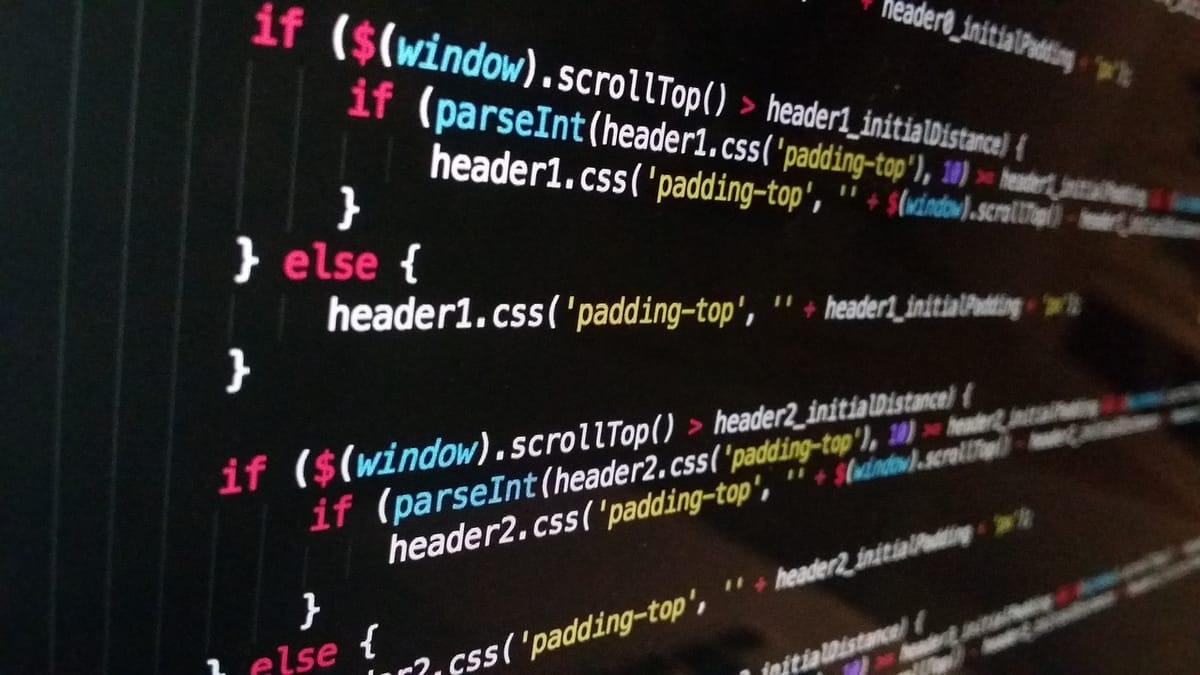YC: Does Programming Not Matter Anymore In The AI Era?

In an era where AI can write code, should founders still learn programming? As billion-dollar startups run on smaller teams and automation reshapes tech careers, the rules of entrepreneurship are being rewritten. Here's what it means for the future.
Disclaimer:
This blog post was auto-generated by Accunote AI, aiming to make audio knowledge sharing more accessible. While we strive for accuracy, please note that AI-generated content may contain minor inaccuracies. The original ideas and insights belong to their respective creators: @YC.
AI Programming Reshapes Founder Skills
The rise of AI in programming challenges conventional wisdom about non-technical founders learning to code. Devon's launch sparked significant interest in AI programming, inspiring many founders to enter this field. YC-funded companies like Suite and Fume are working on solving tasks for junior developers. The question now is whether learning to code remains essential for entrepreneurs and professionals in various fields, given AI's increasing capability to handle programming tasks.
Company Size Preferences Diverge
Newer founders often associate larger employee counts with higher status, while experienced founders and engineers prefer smaller teams due to management complexities. As companies grow to around 1,000 employees, even capable CEOs find it difficult to impose their will on the organization. This observation, shared by Mark Pincus from Zynga, highlights the limitations that come with scale. Some founders, like Patrick Collison of Stripe, evolve from viewing additional people as distractions to seeing the company itself as a product to be engineered, with people as a core component.
Scaling Challenges Impact Management
Transitioning from small, intimate engineering teams to large organizations presents significant challenges. An YC shared a personal experience of scaling from a small team to an engineering organization of 5,100 people after Pokémon Go's success at Niantic. This growth requires a shift from a close-knit "tribe" mentality to focusing on maximizing performance across larger groups. Young founders struggle with balancing automation and human resources in the new AI-driven landscape, shifting towards an expected value calculation weighing automation benefits against effective human resource utilization.
Startup Ecosystem Evolution Intensifies Competition
The startup ecosystem has evolved significantly since the early 2000s. Many functions previously built in-house are now replaced by SaaS services, infrastructure, and open-source solutions. Despite predictions of smaller companies, startup applications to Y Combinator have increased dramatically, exceeding 50,000 per year. While starting companies has become easier due to available infrastructure, success requirements have increased. Founders now need better taste and craftsmanship to stand out in a highly competitive environment, with the baseline for success rising significantly.
Technological Democratization Fuels Entrepreneurship
Increasing accessibility of powerful technology, including open-source software like Ruby on Rails, has lowered barriers to entry for aspiring entrepreneurs. This enables a wider range of people to prove their ideas and attract capital. The abundance of capital for the right opportunities shifts the challenge to enabling human capital to flourish and match these opportunities. The trend of powerful technology simplifying company creation continues, allowing more people to transform ideas into prototypes and attract initial users.
LLMs Reshape Programming Landscape
Large Language Models (LLMs) are transforming the programming industry, raising questions about the future of coding careers. With AI's ability to generate code, there's debate on whether traditional coding skills will remain valuable for future founders and professionals. The industry is in the early stages of LLM integration, where AI has learned to communicate and code, potentially automating many programming tasks. However, LLMs face limitations in managing real-world complexities, struggling to fully encompass the infinite scenarios in complex application development.
Programming Education Faces Paradigm Shift
Jensen Huang's statement that "everybody should learn how to program" is being challenged. A contrasting view suggests that computing technology should aim to eliminate programming needs, making human language the primary interface. This perspective implies that as AI advances, traditional coding skills may become less critical for the general population. However, there's still a strong need for formal education in computer science and engineering, as these backgrounds help develop the necessary taste and craftsmanship to excel in the current startup ecosystem.
Cognitive Benefits of Coding Persist
Evidence suggests that LLMs develop logical thinking skills by analyzing code repositories like GitHub, supporting the belief that learning to code enhances cognitive abilities. Studies indicate that for certain problem types, using an LLM to write code is more effective than direct problem-solving. The programming mindset continues to be valuable for enhancing problem-solving skills across various business aspects, with many successful founders applying their coding background to tackle complex business challenges systematically.
Human-AI Collaboration Shapes Product Development
While AI may assist with backend software development, APIs, and models, the artistry in creating technology products lies in the human-technology interface. Determining product functionality and design still requires human insight and creativity. The ability to articulate ideas clearly, especially in contexts like Y Combinator interviews, remains crucial. The assumption that smart individuals have thoroughly thought through their concepts, even if not explicitly stated, is often incorrect.
AI Revolutionizes Programming Landscape
AI and LLMs are expanding the definition of a programmer, suggesting that "everybody in the world is now a programmer". This democratization of programming capabilities may enable individuals without formal coding education to create software solutions, potentially disrupting the traditional software development landscape. The evolution of AI-powered coding assistance tools has made significant progress recently, with YC funding several companies building tools that aim to take over certain tasks from developers. These advancements could revolutionize programming similar to how photography changed visual representation and how diffusion models now allow image generation through text prompts.
AI programming tools have made significant strides since the introduction of GitHub Copilot. The SweepBench benchmark, which measures AI programming capabilities, currently shows a state-of-the-art performance of 14%. While this is still well below human performance, rapid improvements are expected due to increased focus and better models. However, SweepBench primarily tests the ability to fix small bugs in existing repositories, which differs from building new applications from scratch. Currently, AI programming tools are more effective for smaller tasks typically handled by junior developers, such as fixing HTML tags or minor bugs, but struggle with complex systems like building scalable distributed back-end systems.
AI Transforms Software Company Structures
The advent of AI in software engineering may lead to a significant reduction in the number of employees needed in software companies. There's a possibility of billion-dollar unicorn companies functioning with as few as 10 employees, potentially maintaining a family-like structure. This scenario suggests a dramatic shift in the traditional software company model and workforce requirements. While this concept has been present in Silicon Valley for over a decade, with examples like Instagram and WhatsApp being acquired for substantial amounts with minimal staff, a sustained trend has not yet been observed. However, current advancements in AI may finally enable this shift to become a reality.
The impact of AI on company size and valuation remains a topic of speculation in the tech industry. It is uncertain whether AI will lead to the creation of more unicorns, enable smaller teams to build trillion-dollar companies, or result in a long tail of numerous unicorns. Instead of a few trillion-dollar tech giants dominating the market, AI could potentially enable thousands of billion-dollar companies, varying in size from 1 to 1000 employees, each addressing real customer problems and societal issues.
AI Challenges Traditional Programming Paradigms
The development of AI programming tools can be compared to the evolution of programming languages. Over time, programming has moved towards higher levels of abstraction, progressing from low-level assembly code to more sophisticated languages. AI assistance in coding represents another step in this evolution, potentially allowing for even higher levels of abstraction in software development. The evolution has moved from low-level languages like Fortran and C++, which required deep understanding of hardware and memory management, to higher-level, dynamically-typed languages like JavaScript and Python. This progression has led to the current trend of programming with natural language.
Despite this evolution, expert programmers often maintain knowledge of lower-level concepts, even when working with high-level languages, as it provides a deeper understanding of the entire computing stack. The concept of natural language to SQL translation has been around for years but hasn't gained significant traction. This is not solely due to implementation difficulties, but also because effective database querying requires more than just language translation. It necessitates understanding the right questions to ask about the data, comprehending how different elements interconnect, and grasping relational database concepts.
AI Faces Real-World Programming Challenges
While AI programming tools are improving, they still face challenges in real-world applications. The current AI models excel in the "design world" with perfect engineering tolerances and simulated data. However, they struggle with the complexities of real-world engineering problems, which often require "hot fixes" and "magic numbers" to make systems work. These real-world challenges, similar to the coefficients of friction in physics, are infinitely varied and difficult for AI to fully address. While AI might eventually achieve accurate translation from English to SQL, the most challenging aspect of database management lies in data modeling.
Data engineering teams often struggle with data modeling because it attempts to encapsulate the complexities of the real world. The process involves modeling numerous variables, including interpersonal interactions and workflow patterns, which are inherently messy and difficult to perfectly capture through AI alone. Human input remains crucial in thinking through these intricacies and translating business requirements into effective data models. This suggests that there may be limitations to how far abstraction can progress in programming languages.
Sweebench Dataset Revolutionizes AI Programming
The Princeton NLP group's release of Sweebench about eight months ago marked a real breakthrough in AI programming. This benchmarking dataset, comprising GitHub issues representing real-world programming tasks, has enabled researchers and developers to tackle the challenge of building AI programmers, benchmark their algorithms, and engage in competitive development. Sweebench's impact is comparable to ImageNet, a groundbreaking dataset from Fei-Fei Li's lab at Stanford, which revolutionized image classification tasks. The introduction of such benchmarking datasets has historically led to significant advancements in machine learning.
Image Recognition Evolution Shapes AI Landscape
In 2006, computer-based cat recognition in images was an intractable problem due to variations in cat appearances, positions, and colors. Traditional machine learning methods relied on statistical approaches, feature extraction, and hand-coded signal processing, struggling with complex image recognition tasks. These techniques resulted in high error rates of 30-40%, significantly underperforming compared to human perception's 5% error rate. The introduction of AlexNet, developed by a University of Toronto group, marked a significant advancement in deep learning. By leveraging GPUs to train deep learning networks, AlexNet achieved substantially better performance than previous techniques, revolutionizing machine learning and image recognition fields.
Unicorn startups increase yearly
The number of unicorns (startups valued over $1B) has increased year-on-year over the past decade, a trend expected to continue. The debate on whether programming is purely an implementation task or an iterative process where ideas emerge during development continues. Some argue that flexible programming languages are crucial as good ideas often surface during the building process, extending this philosophy to writing as a form of thinking. Despite AI advancements, coding skills remain fundamental for innovation, providing the foundation for understanding and building technology.
Future scenario for app development
A potential future scenario for app development involves programmers functioning more like product managers, with applications built by writing specifications in natural language, and AI translating these into functional code.
The Jevons paradox suggests that as services become more efficient and cheaper to deliver, demand for them increases. This phenomenon has been observed in various technological advancements, such as Excel spreadsheets and word processors, where increased efficiency led to higher demand for related skills rather than reducing workforce needs.
AI and advanced software tools can free people from mundane, repetitive tasks, allowing them to pursue more creative and fulfilling work. This shift represents a significant opportunity for societal progress and individual growth.




